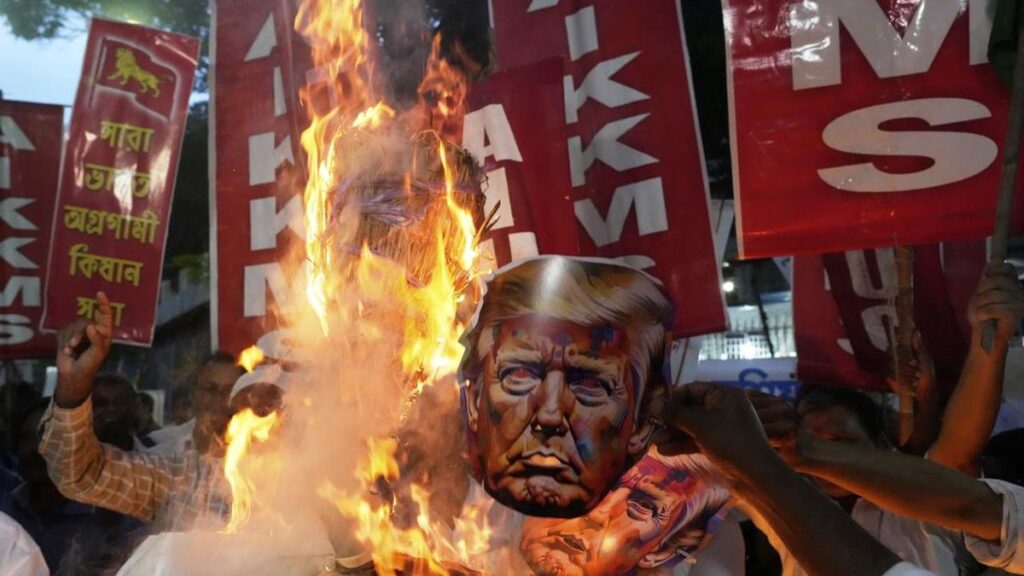
India’s trade negotiations with the United States face significant challenges as new tariffs are set to be implemented. Indian Foreign Minister Subrahmanyam Jaishankar emphasized the importance of defending the country’s “red lines” in discussions with Washington, particularly ahead of the anticipated tariffs that could reach as high as 50 percent. These tariffs are a response to India’s increased purchases of Russian oil, which have drawn the ire of US officials.
As of now, a 25 percent tariff has already been enforced, with an additional 25 percent scheduled to take effect on August 27, 2025. This situation has complicated the upcoming visit of US trade negotiators to New Delhi, which has been called off, dampening hopes for a reduction or postponement of the tariffs.
At an event hosted by the Economic Times in New Delhi, Jaishankar underscored the significance of protecting the interests of Indian farmers and small producers. He noted that previous trade talks had faltered earlier in 2025 when India declined to open its agricultural and dairy sectors to US imports. The current bilateral trade between India and the US stands at over $190 billion.
Jaishankar insisted that India has the right to make decisions that align with its national interests. He remarked, “We have some red lines in the negotiations, to be maintained and defended.” The potential economic ramifications of the new tariffs are serious. According to analysts at Capital Economics, if the full tariffs are enforced, India’s economic growth could be negatively impacted by 0.8 percentage points in both 2025 and 2026. Long-term consequences could include diminished appeal for India as a global manufacturing hub.
Jaishankar also expressed concerns regarding the foreign policy approach of US President Donald Trump, describing it as unusual. He pointed out that “We have not had a US president who conducts his foreign policy so publicly as the current one and (it) is a departure from the traditional way of conducting business with the world.”
The Indian minister further criticized the US’s focus on India’s oil purchases from Russia, suggesting that similar scrutiny is not applied to other significant buyers like China and the European Union. “If the argument is oil, then there are (other) big buyers. If the argument is who is trading more (with Russia), then there are bigger traders,” Jaishankar stated, noting that trade between Russia and Europe exceeds that of Russia and India.
Additionally, he highlighted that India’s Russian oil purchases had not been a topic of discussion in earlier trade negotiations with the US prior to the public announcement of the tariffs. As the situation develops, the Indian government remains determined to navigate these trade challenges while safeguarding its economic interests.






